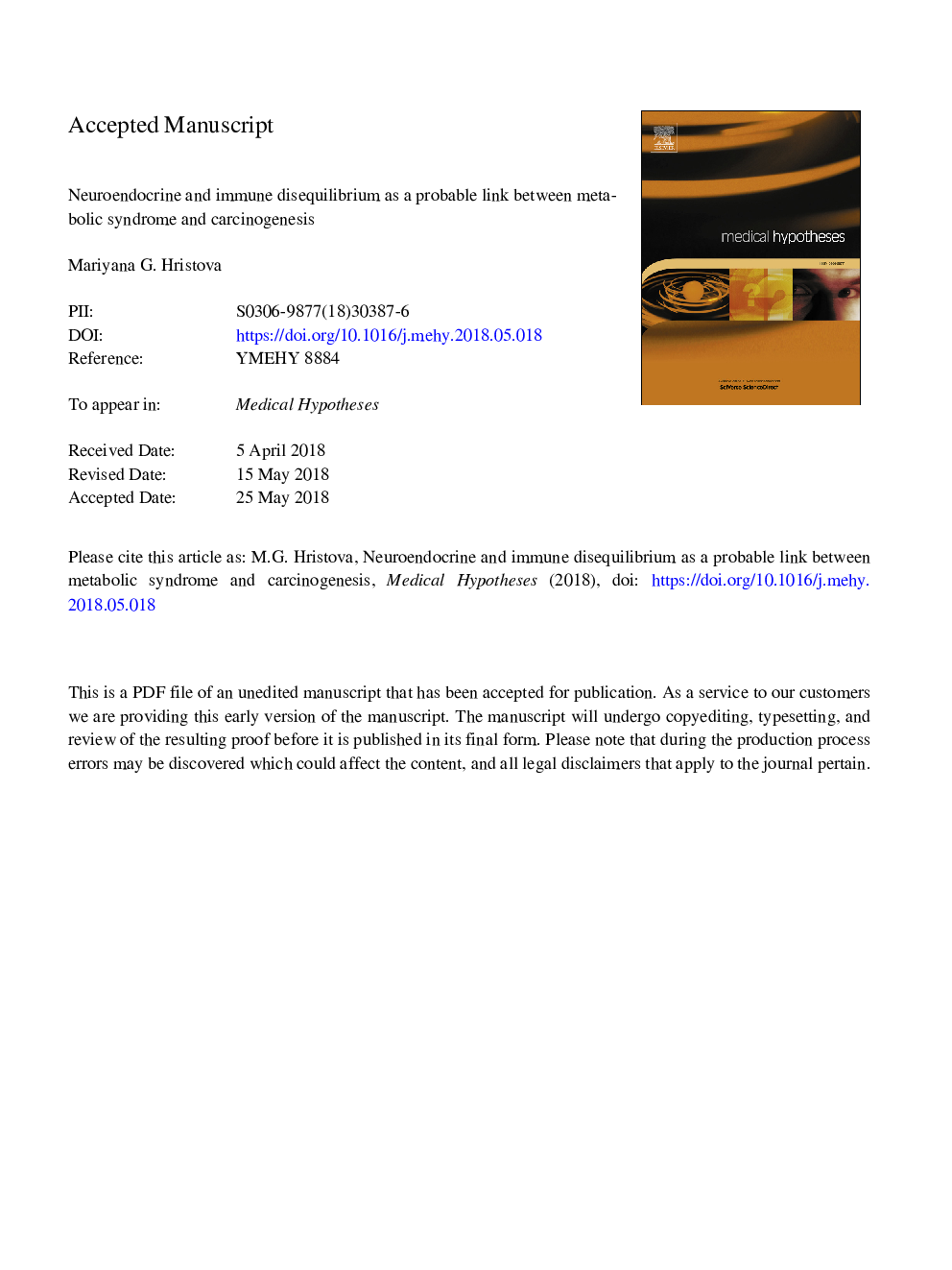| Article ID | Journal | Published Year | Pages | File Type |
|---|---|---|---|---|
| 8515209 | Medical Hypotheses | 2018 | 11 Pages |
Abstract
Numerous investigations prove a higher incidence of carcinogenesis in metabolic syndrome (MetS). They indicate the important role of obesity, elevated inflammatory biomarkers, hyperinsulinemia, hyperglycemia, and dyslipidemia as well. Elevated plasma insulin and free insulin-like growth factor-1 (IGF-1) levels stimulate cell proliferation. The present publication considers the role of neuroendocrine and immune disequilibrium in MetS as a reason for transition to carcinogenesis. It emphasizes the role of hormonal disbalance, i.e. hyperleptinemia, hyperinsulinemia, hypercortisolemia, hypercatecholaminemia, hyperestrogenemia and hyperandrogenemia in MetS. It is presumed that these important components modify cellular microenvironment towards carcinogenesis. The interactions between neurotrophins, leptin, and mast cells and the alterations in the hypothalamo-hypophyseal-adrenal axis in MetS are discussed. It is assumed that they are the consequence of inflammatory distress followed by hormonal and immune disbalance at a central level as well as of enlarged adipose tissue and changed adipocyte microenvironment leading, finally, to carcinogenesis.
Related Topics
Life Sciences
Biochemistry, Genetics and Molecular Biology
Developmental Biology
Authors
Mariyana G. Hristova,
